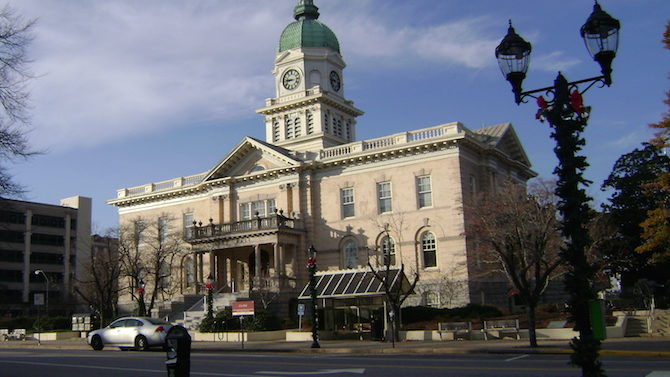Going through precinct-by-precinct results from the May 22 election, one thing jumps out: Harry Sims campaigned for mayor on the premise that residents outside the Loop weren’t getting a fair shake from the county government. But it turns out there wasn’t much of an inside/outside-the-Loop divide after all. Kelly Girtz won at least a plurality in every precinct except the two Sims represented on the commission, and Girtz won over 50 percent of the vote in 19 out of 24 precincts.
Turnout was a major factor. In Sims’ former district, it was just 20 percent. In precinct 5C (Chase Street Elementary), where Girtz won 87 percent of the vote, it was 50 percent—the highest of any precinct.
Either Democrats had a big edge when it came to enthusiasm, or Athens-Clarke County is getting bluer. ACC is usually about 65 percent Democratic, but on May 22, 72 percent of primary voters who picked up a partisan ballot chose a Democratic one. Considering that the number of people who voted was about 1,000 higher than either the Sims or Girtz campaigns expected, signs point to enthusiasm. That’s good news for state Reps. Deborah Gonzalez and Jonathan Wallace, as well as Democratic candidates statewide, come November.
If you were wondering whether the local elections or the gubernatorial primaries were driving turnout, the answer is both. Of the 17,939 people who chose a partisan ballot, 554 didn’t vote for governor. That number rose to more than 3,000 by the end of the state and federal ballot. But voting picked up again in the nonpartisan portion of the ballot, with only 699 out of 18,884 voters skipping the mayoral race.
Commissioners Talk Housing, Discrimination
Affordable housing, a civil rights committee and minority contracts top the agenda for Commissioner Melissa Link and two newly elected commissioners. Link, Russell Edwards and Mariah Parker discussed what they want to do in their first 30 days in office during a panel discussion last week at Hendershot’s hosted by the Athens Anti-Discrimination Movement’s Mokah Jasmine Johnson.
Link called rising housing costs in Athens “a crisis” and called for an affordable housing task force to address the issue. “People who make two to three times the median income are still struggling to find affordable homes in Athens,” she said.
Edwards said the creation of a civil rights committee to handle accusations of discrimination by local businesses is his top priority. He said complaints should be publicized so that businesses are shamed into compliance.
Link and Parker agreed on the importance of a civil rights committee and a stronger anti-discrimination ordinance that covers not just bars but all types of businesses. The University of Georgia also needs to step up, Link said, because “you have a new demographic of UGA students who have a real sense of entitlement.”
Parker, a PhD student in linguistics, also criticized UGA for not doing much to help youth in Athens. “The university extracts a lot of resources from this community and doesn’t give back enough,” she said.
As far as discrimination, part of the problem, Parker said, is the lack of resources in the African-American community. “The racists have all the money, still, so it’s economically advantageous to cater to them,” she said. “If we had a black middle class, those places would integrate on their own.” Parker listed her No. 1 priority as setting aside 30 percent of city contracts for black- and Latino-owned companies.
The three also discussed the disconnect between unemployment (low) and wages (also low) and poverty (high) in Athens.
Edwards recalled driving a woman from the Parkview public housing complex to the polls. She told him that she had worked at a fast-food restaurant for 12 years and made $9 an hour. ACC pays government employees a living wage, and businesses that want tax breaks or other incentives to open in Athens should be asked to do the same, he said. “If you want a public benefit from this government, you should serve the public in return,” he said.
Parker drew a link between low-wage service industry jobs and mental health problems. “If you’re getting screamed at in a fiery hot kitchen for 12 or 14 hours, yeah, you might go a little crazy,” she said. “…If somebody’s making $20 an hour, the idea of going to therapy doesn’t seem so far off.”
Like what you just read? Support Flagpole by making a donation today. Every dollar you give helps fund our ongoing mission to provide Athens with quality, independent journalism.










